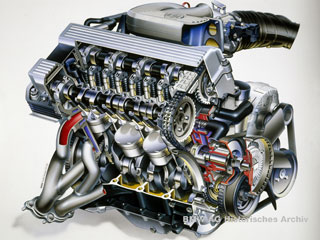BMW 318ti Testimonial: What Makes This Design Stand Out
BMW 318ti Testimonial: What Makes This Design Stand Out
Blog Article
Vital Factors To Consider for Selecting the most effective Engine for Your Needs
In the realm of choosing the ideal engine to meet your demands, numerous crucial variables demand careful factor to consider to make sure ideal performance and efficiency. From the nuanced balance in between power and performance to the often-overlooked aspects of maintenance and service requirements, each aspect plays a pivotal role in figuring out the most suitable engine for your specific requirements. As the intricacy of engine innovations remains to develop, discerning the most suitable option demands a deep understanding of the interplay in between different considerations. By checking out the elaborate web of elements that underpin this decision-making procedure, a more clear path emerges in the direction of selecting an engine that not only satisfies but exceeds your assumptions.
Power and Efficiency
When examining engines for optimum efficiency, it is important to prioritize both power outcome and performance. Power output measures the ability of an engine to generate power, which straight influences its efficiency. A high power output is essential for demanding jobs such as high-speed demands or sturdy applications. It ensures that the engine can handle the work effectively and efficiently. Power alone is not sufficient; effectiveness plays a significant duty in establishing the total performance of an engine. Performance describes exactly how well the engine transforms fuel into usable energy. An extra effective engine will provide much better gas mileage, lower exhausts, and decreased operating expense. Striking the appropriate balance between power outcome and performance is crucial to choosing an engine that satisfies your certain needs. It is vital to take into consideration factors such as the intended use the engine, environmental impact, and lasting price implications when making this choice. By very carefully assessing both power and effectiveness, you can pick an engine that delivers optimal performance and fulfills your demands properly.
Gas Effectiveness and Economy
In the world of engine selection, the factor to consider of fuel performance and economic climate holds paramount significance. Gas performance refers to the engine's capacity to transform gas into energy with marginal waste, straight impacting operating expense and ecological sustainability. bmw 318ti. When selecting an engine, examining its fuel economic situation is critical to identify lasting savings and environmental effect. Engines with greater gas efficiency not just decrease gas expenditures however also lower carbon emissions, adding to a greener procedure.

Compatibility and Application
Taking into consideration the fuel performance and economic situation of an engine, the following vital element to address is its compatibility and application within specific operational contexts. Compatibility refers to just how well the engine incorporates with the general system or equipment it powers. It includes variables such as physical measurements, installing options, electric interfaces, and control systems. Ensuring compatibility is vital to avoid problems such as getting too hot, resonances, or power imbalances (bmw 318ti).
Various engines are made for specific purposes, whether it be commercial machinery, aquatic vessels, vehicles, or power generators. Recognizing the designated application permits for the option of an engine that can provide the needed power output, torque, and operational characteristics.
Maintenance and Service Demands
Maintenance and service demands play a critical role in ensuring the long life and optimum efficiency of an engine. Regular upkeep is vital to protect against breakdowns, expand the lifespan of the engine, and maintain its efficiency. When selecting an engine, it is necessary to consider the supplier's suggested maintenance timetable and the availability of solution facilities or certified professionals.
Elements such as the regularity of oil changes, filter substitutes, and general examinations can dramatically impact the engine's performance. Some engines might need more frequent maintenance based upon their design and usage, while others might have longer intervals between maintenance checks. It is essential to abide by these solution requirements to prevent pricey repairs and unexpected downtime.

Expense and Budget Plan Considerations
Budget constraints frequently play a considerable function in the decision-making process when selecting an engine for a certain application. When thinking about the cost and budget plan implications of choosing an engine, it is vital to evaluate not just the first purchase rate yet also the long-term costs related to maintenance, fuel usage, and potential upgrades or repairs. It is crucial to strike a balance in between the upfront price of the engine and its general lifecycle costs to make certain that the chosen engine remains financially sustainable throughout its functional life expectancy.
Aspects such as fuel performance, integrity, and resilience can straight impact the total price of possession of an engine. While an extra expensive engine might have greater in advance costs, it could potentially cause lower maintenance and fuel costs with time, hence supplying far better worth over time. Additionally, taking into consideration the availability and expense of extra components, as well as the convenience of maintenance and service, can assist prevent unanticipated monetary pressure in the future. By very carefully assessing these price and budget factors to consider, you can make an enlightened decision that straightens with your monetary constraints and functional needs.
Final Thought

Gas efficiency refers to the engine's capability to convert fuel into power with minimal waste, straight affecting operating prices and ecological like it sustainability.Variables influencing fuel effectiveness include engine design, combustion effectiveness, and overall efficiency optimization. In addition, selecting the suitable fuel type and grade as suggested by the engine supplier can additionally enhance performance and prolong engine life-span.
Engines with great service features see post and easily available components can minimize upkeep prices and decrease the time the engine is out of operation - bmw 318ti. It is essential to strike an equilibrium in between the in advance cost of the engine and its total lifecycle prices to ensure that the picked engine remains financially lasting throughout its operational life-span
Report this page